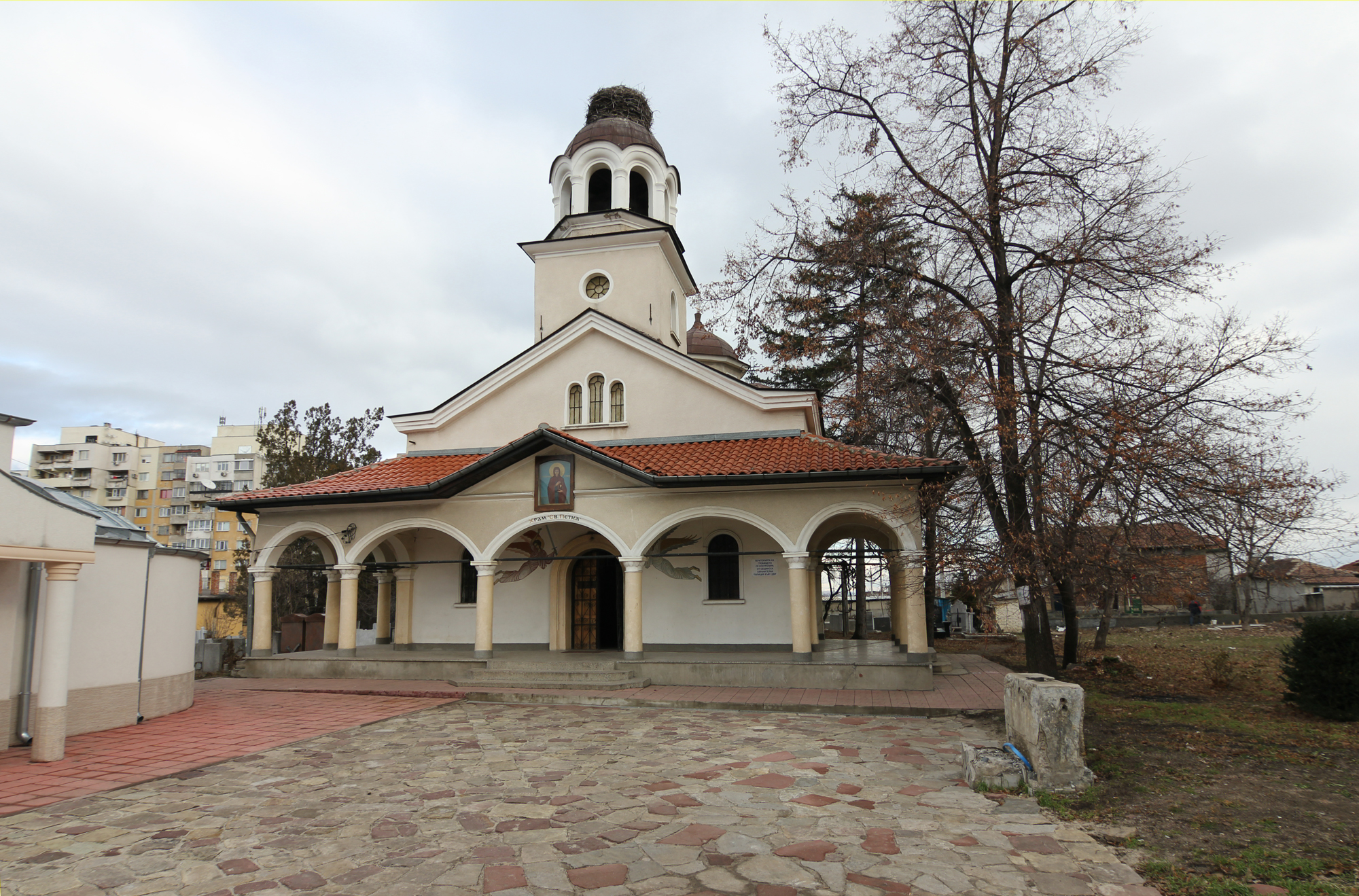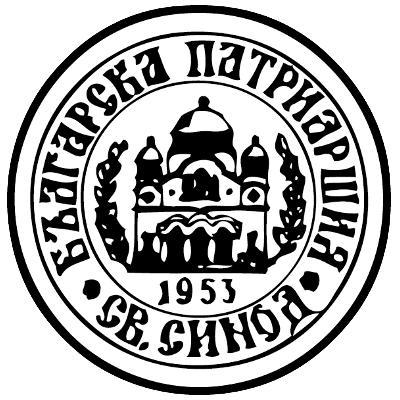|
Orlandovtsi
Orlandovtsi ( bg, Орландовци , also transliterated as ''Orlandovci'' or ''Orlandovtzi'') is a neighbourhood of Sofia, the capital of Bulgaria. It lies in the northeast of the city and is administratively part of the Serdika municipality. Orlandovtsi lies between Malashevtsi to the southeast and Iliyantsi to the northwest. The neighbourhood has two Bulgarian Orthodox churches and a school. It includes the Central Sofia Cemetery, popularly known as the Orlandodvtsi Cemetery. Orlandovtsi has been part of Sofia since 1961; before that date, it was a separate village. It was first mentioned in historical records in 1420, with several more references throughout the 18th century. According to the prevalent and scientifically accepted etymology, Orlandovtsi's name is derived from the personal name Orlando, whose bearer is theorized to have been a Western Europe Western Europe is the western region of Europe. The region's countries and territories vary depending on context ... [...More Info...] [...Related Items...] OR: [Wikipedia] [Google] [Baidu] |
Serdika
Serdika or Serdica ( Bulgarian: ) is the historical Roman name of Sofia, now the capital of Bulgaria. Currently, Serdika is the name of a district located in the city. It includes four neighbourhoods: "Fondovi zhilishta"; "Banishora", " Orlandovtsi" and "Malashevtsi" as well as the central parts of "Draz mahala". It has an area of 17.53 km² that counts for 1.3% of the total Capital Municipality area and 8.8% of the city proper. Serdica has a population of 52,918. There are 6 kindergartens, 13 schools and 6 chitalishta in the territory of the district. Healthcare infrastructure includes II and V City Hospitals; Institute of Transport Medicine and two polyclinics. The Sofia Central Railway Station; Central Bus Station Sofia and the Lavov Most are also located in Serdica. See also *Edict of Serdica (AD 311), through which Emperor Galerius decreed a policy of tolerance towards Christianity *History of Sofia The history of Sofia, Bulgaria's capital and largest city, spans ... [...More Info...] [...Related Items...] OR: [Wikipedia] [Google] [Baidu] |
Central Sofia Cemetery
The Central Sofia Cemetery ( bg, Централни софийски гробища, ''Tsentralni sofiyski grobishta'') or the Orlandovtsi Cemetery ("Орландовци") is the main cemetery in Sofia, the capital of Bulgaria. The cemetery has several chapels used by various Christian denominations, such as a Bulgarian Orthodox church of the Dormition of the Theotokos, a Roman Catholic chapel of Saint Francis of Assisi, an Armenian Apostolic chapel, a Jewish synagogue, etc. The cemetery also features Russian, Serbian, Romanian and British military sections. Notable interments * Georgi Asparuhov, footballer * Elisaveta Bagryana, Bulgarian writer and poet * Blaga Dimitrova, Bulgarian poet and 2nd Vice-President of non-Communist Bulgaria * Georgi Dimitrov, Prime Minister of Bulgaria * Ghena Dimitrova, soprano * Dimitar Dimov * Mykhailo Drahomanov, Ukrainian scholar. * Nicola Ghiuselev, operatic bass * Aleko Konstantinov * Andrey Lyapchev * Aleksandar Pavlov Malinov, Prime Min ... [...More Info...] [...Related Items...] OR: [Wikipedia] [Google] [Baidu] |
Sofia
Sofia ( ; bg, София, Sofiya, ) is the Capital city, capital and List of cities and towns in Bulgaria, largest city of Bulgaria. It is situated in the Sofia Valley at the foot of the Vitosha mountain in the western parts of the country. The city is built west of the Iskar (river), Iskar river, and has many mineral springs, such as the Sofia Central Mineral Baths. It has a humid continental climate. Being in the centre of the Balkans, it is midway between the Black Sea and the Adriatic Sea, and closest to the Aegean Sea. Known as Serdica in Late antiquity, Antiquity and Sredets in the Middle Ages, Sofia has been an area of List of oldest continuously inhabited cities, human habitation since at least 7000 BC. The recorded history of the city begins with the attestation of the conquest of Serdica by the Roman Republic in 29 BC from the Celtic settlement of Southeast Europe, Celtic tribe Serdi. During the decline of the Roman Empire, the city was raided by Huns, Visigoths, P ... [...More Info...] [...Related Items...] OR: [Wikipedia] [Google] [Baidu] |
Bulgaria
Bulgaria (; bg, България, Bǎlgariya), officially the Republic of Bulgaria,, ) is a country in Southeast Europe. It is situated on the eastern flank of the Balkans, and is bordered by Romania to the north, Serbia and North Macedonia to the west, Greece and Turkey to the south, and the Black Sea to the east. Bulgaria covers a territory of , and is the sixteenth-largest country in Europe. Sofia is the nation's capital and largest city; other major cities are Plovdiv, Varna and Burgas. One of the earliest societies in the lands of modern-day Bulgaria was the Neolithic Karanovo culture, which dates back to 6,500 BC. In the 6th to 3rd century BC the region was a battleground for ancient Thracians, Persians, Celts and Macedonians; stability came when the Roman Empire conquered the region in AD 45. After the Roman state splintered, tribal invasions in the region resumed. Around the 6th century, these territories were settled by the early Slavs. The Bulg ... [...More Info...] [...Related Items...] OR: [Wikipedia] [Google] [Baidu] |
Bulgarian Orthodox Church
The Bulgarian Orthodox Church ( bg, Българска православна църква, translit=Balgarska pravoslavna tsarkva), legally the Patriarchate of Bulgaria ( bg, Българска патриаршия, links=no, translit=Balgarska patriarshiya), is an autocephalous Orthodox jurisdiction. It is the oldest Slavic Orthodox church, with some 6 million members in Bulgaria and between 1.5 and 2 million members in a number of European countries, the Americas, Australia, New Zealand and Asia. It was recognized as autocephalous in 1945 by the Ecumenical Patriarchate of Constantinople. History Early Christianity The Bulgarian Orthodox Church has its origin in the flourishing Christian communities and churches set up in the Balkans as early as the first centuries of the Christian era. Christianity was brought to the Balkans by the apostles Paul and Andrew in the 1st century AD, when the first organised Christian communities were formed. By the beginning of the ... [...More Info...] [...Related Items...] OR: [Wikipedia] [Google] [Baidu] |
Etymology
Etymology () The New Oxford Dictionary of English (1998) – p. 633 "Etymology /ˌɛtɪˈmɒlədʒi/ the study of the class in words and the way their meanings have changed throughout time". is the study of the history of the form of words and, by extension, the origin and evolution of their semantic meaning across time. It is a subfield of historical linguistics, and draws upon comparative semantics, morphology, semiotics, and phonetics. For languages with a long written history, etymologists make use of texts, and texts about the language, to gather knowledge about how words were used during earlier periods, how they developed in meaning and form, or when and how they entered the language. Etymologists also apply the methods of comparative linguistics to reconstruct information about forms that are too old for any direct information to be available. By analyzing related languages with a technique known as the comparative method, linguists can make inferences about ... [...More Info...] [...Related Items...] OR: [Wikipedia] [Google] [Baidu] |
Orlando (given Name)
Orlando is a masculine given name, originally an Italian form of the given name Roland. Notable people with the name include A * Orlando Ramón Agosti (1924–1997), Argentinian general *Orlando Allen (1803–1874), American politician *Orlando Álvarez (1952–2016), Puerto Rican baseball player *Orlando Álvarez (lawyer) (1935–2013), Chilean lawyer * Orlando Amêndola (1899–1974), Brazilian swimmer *Orlando Anderson (1974–1998), American murder suspect *Orlando Antigua (born 1973), American basketball coach *Orlando Antonini (born 1944), Italian prelate *Orlando Aravena (born 1942), Chilean footballer *Orlando Arcia (born 1994), Venezuelan baseball player * Orlando Aryee (born 1954), Ghanaian politician *Orlando Azinhais (1933–2005), Portuguese fencer B *Orlando Baccino (born 1970), Argentinian judoka *Orlando Bailey (born 2001), English rugby union footballer * Orlando Baker (born 1979), Jamaican-American cricketer * Orlando Harrison Baker (1830–1913), American profes ... [...More Info...] [...Related Items...] OR: [Wikipedia] [Google] [Baidu] |
Western Europe
Western Europe is the western region of Europe. The region's countries and territories vary depending on context. The concept of "the West" appeared in Europe in juxtaposition to "the East" and originally applied to the ancient Mediterranean world, the Roman Empire ( Western Roman Empire and Eastern Roman Empire), and medieval " Christendom" ( Western Christianity and Eastern Christianity). Beginning with the Renaissance and the Age of Discovery, roughly from the 15th century, the concept of ''Europe'' as "the West" slowly became distinguished from and eventually replaced the dominant use of "Christendom" as the preferred endonym within the region. By the Age of Enlightenment and the Industrial Revolution, the concepts of "Eastern Europe" and "Western Europe" were more regularly used. Historical divisions Classical antiquity and medieval origins Prior to the Roman conquest, a large part of Western Europe had adopted the newly developed La Tène culture. As the Roman ... [...More Info...] [...Related Items...] OR: [Wikipedia] [Google] [Baidu] |
Crusades
The Crusades were a series of religious wars initiated, supported, and sometimes directed by the Latin Church in the medieval period. The best known of these Crusades are those to the Holy Land in the period between 1095 and 1291 that were intended to recover Jerusalem and its surrounding area from Islamic rule. Beginning with the First Crusade, which resulted in the recovery of Jerusalem in 1099, dozens of Crusades were fought, providing a focal point of European history for centuries. In 1095, Pope Urban II proclaimed the First Crusade at the Council of Clermont. He encouraged military support for Byzantine emperor AlexiosI against the Seljuk Turks and called for an armed pilgrimage to Jerusalem. Across all social strata in western Europe, there was an enthusiastic response. The first Crusaders had a variety of motivations, including religious salvation, satisfying feudal obligations, opportunities for renown, and economic or political advantage. Later crusades were ... [...More Info...] [...Related Items...] OR: [Wikipedia] [Google] [Baidu] |





